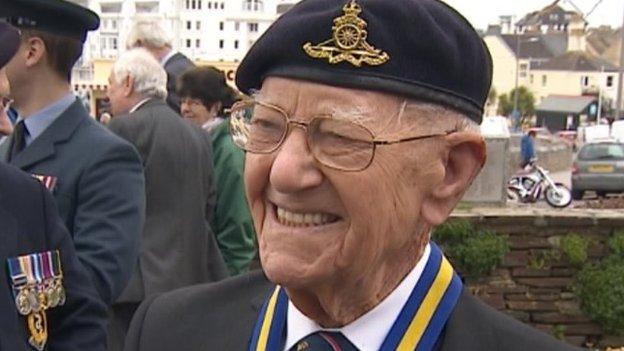Dunkirk 'Little Ship' restoration halted in legal battle
- Published
One of the "Little Ships" that saved thousands of Allied soldiers from being captured in World War Two is in another battle over plans to restore it
One of the "Little Ships" that saved thousands of Allied soldiers from being captured in World War Two is in another battle over plans to restore it.
Lady Cable, one of about 800 vessels drafted into action at Dunkirk in May 1940, is now a shell in Totnes, Devon.
But attempts to have it restored at the National Maritime Museum in Falmouth have been blocked in a row over permission to move the ship.
The Lady Cable Trust said it was the "last chance" to save the ship.
The attempt by the trust to have Lady Cable restored at the museum was blocked by the Turning Point Heritage Trust.
Turning Point, which rescued the ship in 2003, passed it over to the Lady Cable Trust in 2009 to restore it after a number of failed attempts to get National Lottery funding.
But days before it was due to be transferred to the maritime museum in September, Turning Point wrote to the Lady Cable Trust saying it did not have authority to remove the ship.
A letter from Russell Buckingham, chairman of Turning Point, said the ship had been handed over with the condition it "remained in Torbay" and the Lady Cable Trust had "sadly not achieved its aims".
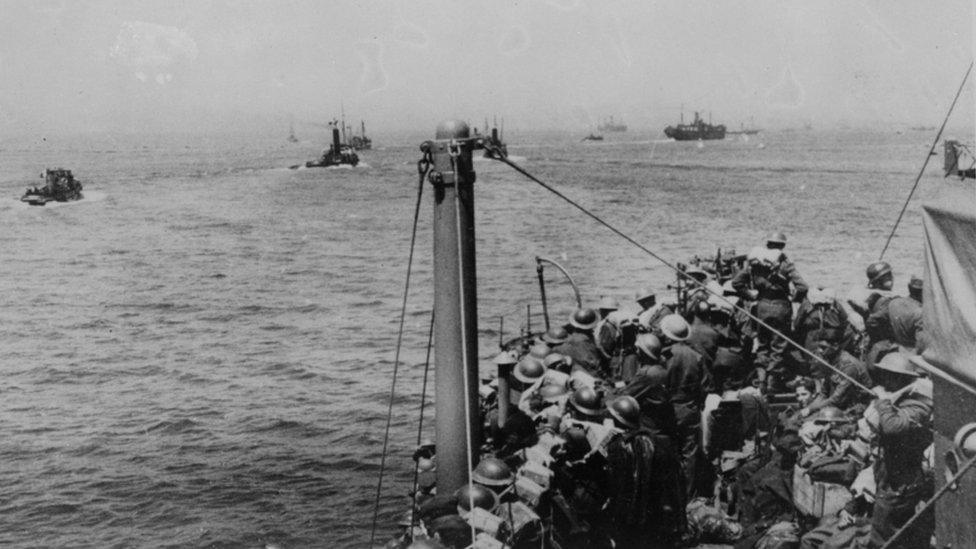
Lady Cable was one of about 700 vessels that saved hundreds of thousands of Allied troops
Lady Cable was built in 1923 in Teignmouth and ferried holidaymakers around the coast off Teignmouth and Torbay until June 1940 when it sailed from Dover for Dunkirk.
It saved 630 Allied soldiers and on return to Dover was requisitioned by the Navy.
The ship spent the rest of its life as a pleasure boat working locally in Torbay until 2003 when, having fallen into disrepair, it sank in the harbour.

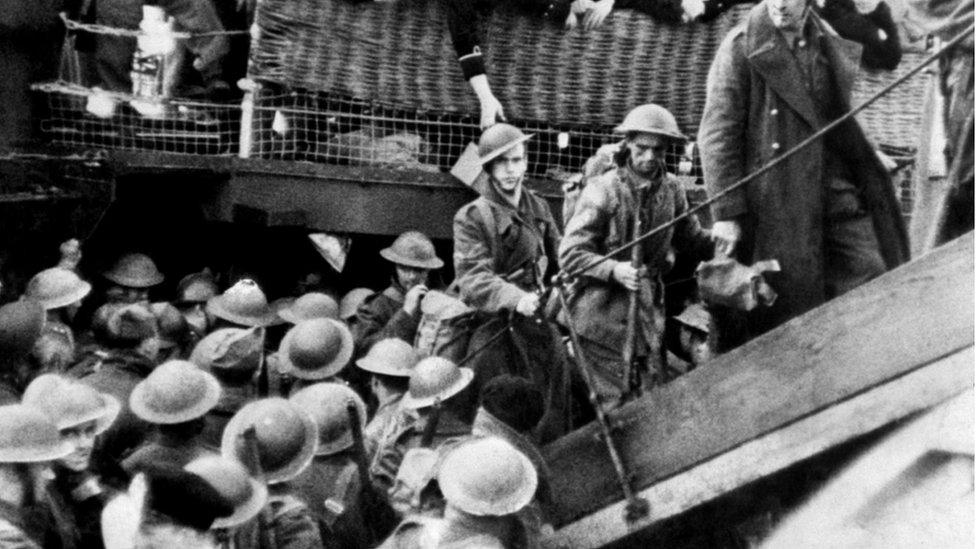
Analysis by Andrew Choong Han Lin, curator of historic photographs and ship plans, National Maritime Museum
The Dunkirk evacuation's primary significance was the successful rescue of 338,226 British and French soldiers.
Trapped in a shrinking perimeter by German forces and with their backs to the sea, the loss of these men would have proved a catastrophe for the Western Allies, and particularly for Britain, which fielded the smallest army.
Although the evacuation was remarkably successful in terms of the number of men saved, this was offset by the forced abandonment of a great deal of military equipment.
The bulk of the British Expeditionary Force would survive to fight another day, but it would be months before they could be re-equipped and ready for further operations.
As Churchill pointed out, in a speech the day after the Dunkirk operation was completed, "we must be very careful not to assign to this deliverance the attributes of a victory. Wars are not won by evacuations".
His words received added weight with the surrender of France at the end of June 1940, as Britain and her empire now faced the prospect of a long war with no allies against a powerful enemy.

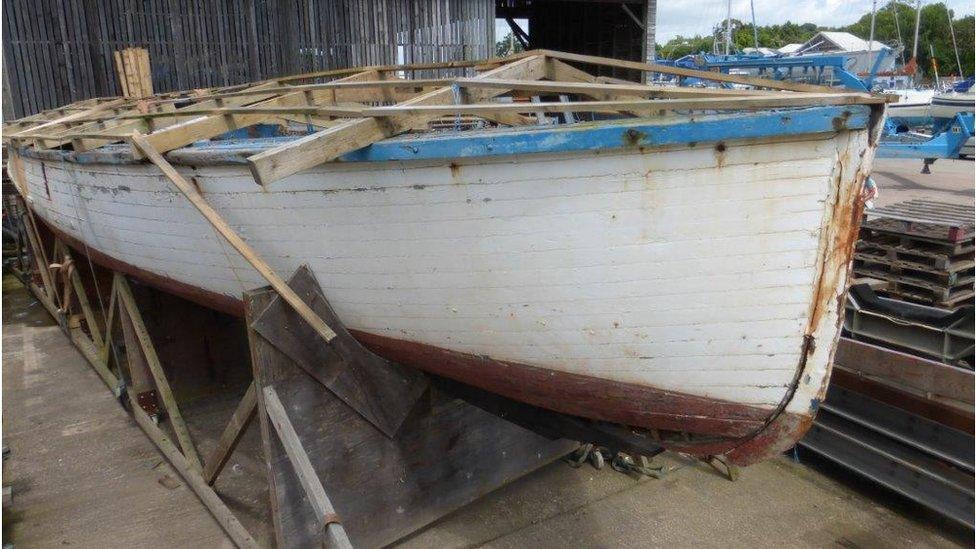
The National Maritime Museum aimed to restore the Lady Cable for taking around the harbour
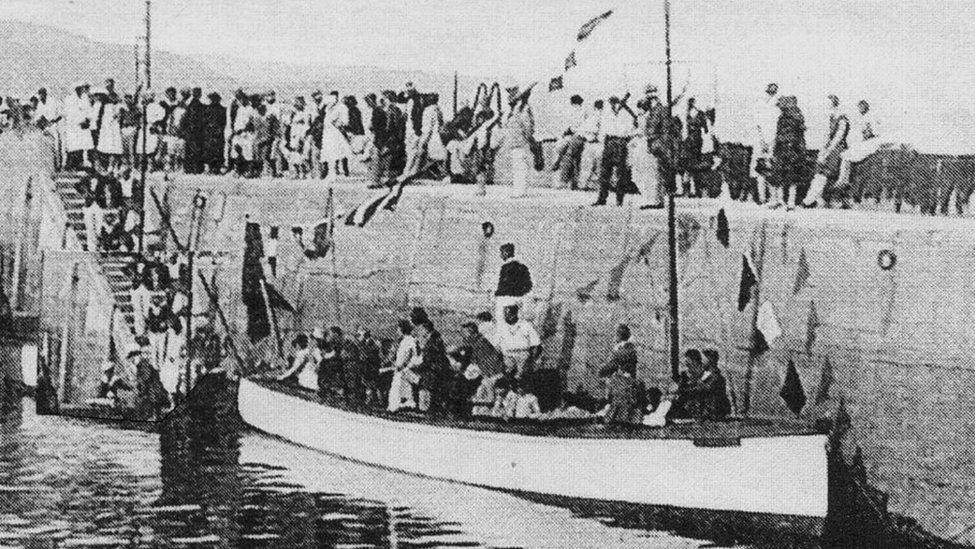
Tourists were taken around Torbay by Lady Cable before and after the war
Lyn Yeoman, the Lady Cable Trust's archivist, said the trust was not aware of the conditions and that they were "unachievable" because the Lady Cable Trust had run out of money.
She added: "The Lady Cable is rapidly deteriorating and this could be the last chance to save her.
"We thought we all had the same ambition to save her."
The Turning Point Heritage Trust said it was hoping to form a registered charity to restore the Lady Cable.
The National Maritime Museum in Falmouth said in a statement: "As custodians of maritime heritage we are always on the lookout for potential restoration projects of this kind, where we can play a part in securing the future of important historic vessels.
"We remain open to taking on Lady Cable as a project and sincerely hope that both parties can resolve their issues as quickly and amicably as possible. Whatever decision is reached we will of course respect the wishes of all those involved."
Dunkirk evacuation
26 May to 4 June 1940
338,226
Allied troops rescued from Dunkirk in France as Germans advanced
-
800 civilian ships dubbed the Little Ships were called in to help
- Published21 May 2015
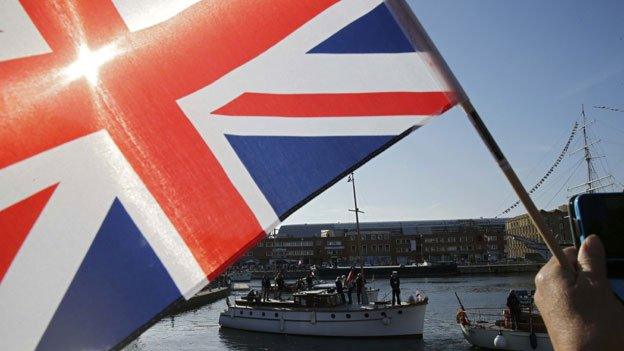
- Published21 May 2015
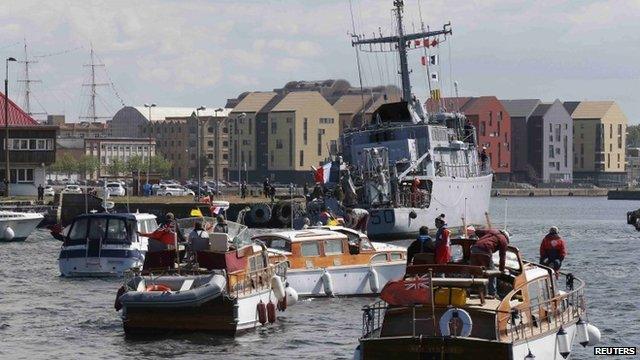
- Published21 May 2015

- Published19 May 2015
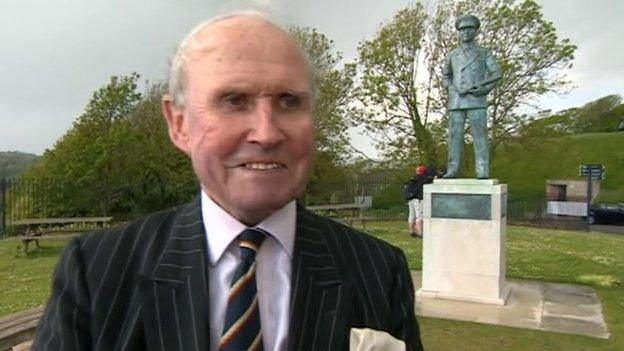
- Published4 April 2015
